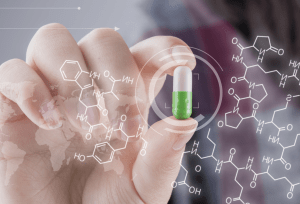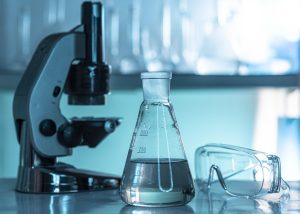Introduction to Accurate Translation of Life Science
Life science translation encompasses pharmaceutical, medical, and clinical research content. Life science translation is different from general translation. It requires precise terminologies, compliance with regulatory requirements, and industry knowledge.
Translation errors can lead to serious consequences, including:
- Non-compliance with regulatory requirements can result in product recalls, fines or delayed entry into the market.
- Patient Safety Risks: Mistranslations of medical instructions or drug labels could lead to harmful outcomes.
- Financial and legal liabilities can cause a company to lose its reputation or lead to expensive lawsuits.
Factors to Consider When Choosing a Life Science Translation Company
It is important to choose a life science translation partner that has the necessary expertise and certifications. The right partner has the certifications, expertise and processes necessary to guarantee accurate and compliant translations. Consider these six factors when choosing your partner.
1. Make Sure the Company Specializes in Life Science Translation
Some translation agencies do not have the necessary expertise to translate life science content. Life science translation is different from general business translation. It requires deep industry expertise, including:
- Pharmaceuticals (clinical trials, regulatory submissions, drug labeling)
- Medical devices (user guides, instructions for usage, compliance documentation).
- Healthcare & Biotechnology (research papers, consent forms for patients, genetic test reports, etc.)
A reliable company will have an established track record within these specialties. You should look for agencies that have testimonials, case studies and sample projects that demonstrate their experience with life sciences. An agency with a large portfolio of work in this area is more likely than not to provide accurate and compliant translations.
2. Verify Relevant Certifications and Compliance Standards
In the life sciences industry, regulatory compliance is of great concern as translated documents are often required to meet strict global standards. Verify that the translation company has relevant certifications in their industry.
- ISO 17100 – International Standard for Translation Services, Ensuring Quality Control
- ISO 13485 – Quality Management Standard for Medical Devices
- ISO 9001 – General Quality Management Certification
- ISO 18587 – Post-editing of Machine Translation Output
A trustworthy translator must also be familiar with the regulations of health authorities, such as:
- FDA (U.S. Food and Drug Administration)
- EMA (European Medicines Agency)
- CFDA (China Food and Drug Administration)
- PMDA (Pharmaceuticals and Medical Devices Agency in Japan)
If you hire a company that has expertise in regulatory compliance, they will help to avoid delays due to non-compliant documents and make sure your materials comply with all legal requirements.
3. Assess the Expertise of Translators and Subject Matter Experts
In-depth knowledge of the industry is required for a high-quality translation in life sciences. Translation companies that excel at their work:
- Experts in both languages (SMEs) with backgrounds in medicine, pharmacy, or biochemistry.
- Certified medical translators with a thorough understanding of regulatory and technical terminology.
- Continual training programs for translators to stay updated with industry developments.
Ask about the training and recruitment processes when evaluating an organization. Do they insist that translators have a degree in medicine or science? Do they provide ongoing education and quality assessment? The more specialized the team is, the more accurate your translations are.
4. Quality Assurance Processes of the Company
The consequences of inaccurate translations are severe, ranging from miscommunications with patients to regulatory rejections. A translation service provider with a good reputation will implement quality control measures, such as:
- Terminology Management – Use of glossaries and translation memory tools for consistency.
- Review processes in multiple steps – Translations should be subjected to at least three levels of quality assurance (initial translating, editing and proofreading).
- Reverse translation – Some companies offer reverse translation and reconciliation in order to check the accuracy of important documents.
A company that has a robust quality assurance system is more likely to deliver translations that are scientifically accurate and precise in terms of language.
5. Secure Data Handling and Advanced Technology
Modern translation workflows are reliant on technology. Leading life science translation firms use:
- Machine translation powered by AI with post-editing by humans (MTPE) for improved efficiency without compromising on quality.
- Translation Management Systems (TMS) to streamline large projects and ensure consistency.
- Secure Cloud-based Platforms for Document Sharing and Collaboration.
Data protection also plays a major role in the industry. Documents such as results of clinical trials, patient records and regulatory submissions should be kept confidential. A reliable translation service provider should:
- Complying with GDPR, HIPAA and other data protection laws.
- Sign non-disclosure agreements (NDAs) with clients and translators.
- Use encrypted channels of communication and secure storage solutions.
When selecting a translation company, ensuring data privacy and regulatory compliance is a priority.
6. Compare Pricing, Turnaround Time, and Customer Support
It’s crucial to find the right balance when evaluating translation services. Low-cost Providers may not provide the best quality, control or security.
The following are key factors to consider:
- Pricing Structure – Transparent quotes without hidden fees
- Turnaround Time – Ability to meet deadlines without sacrificing quality
- Support for customers: 24/7 availability, communication channels and project managers dedicated to each project
A company with scalable solutions and flexible turnaround times is a better long-term partner.
Conclusion: Making an Informed Decision
The choice of the best translation company can have a significant impact on regulatory compliance and patient safety, as well as business success. You can choose a provider who meets your needs by focusing on specialization in the industry, certifications and translator expertise.
A long-term relationship with a reliable company will ensure consistency in quality, regulatory compliance and a faster time-to-market of your medical and pharmaceutical product. Compare translation services based on the seven most important criteria.





